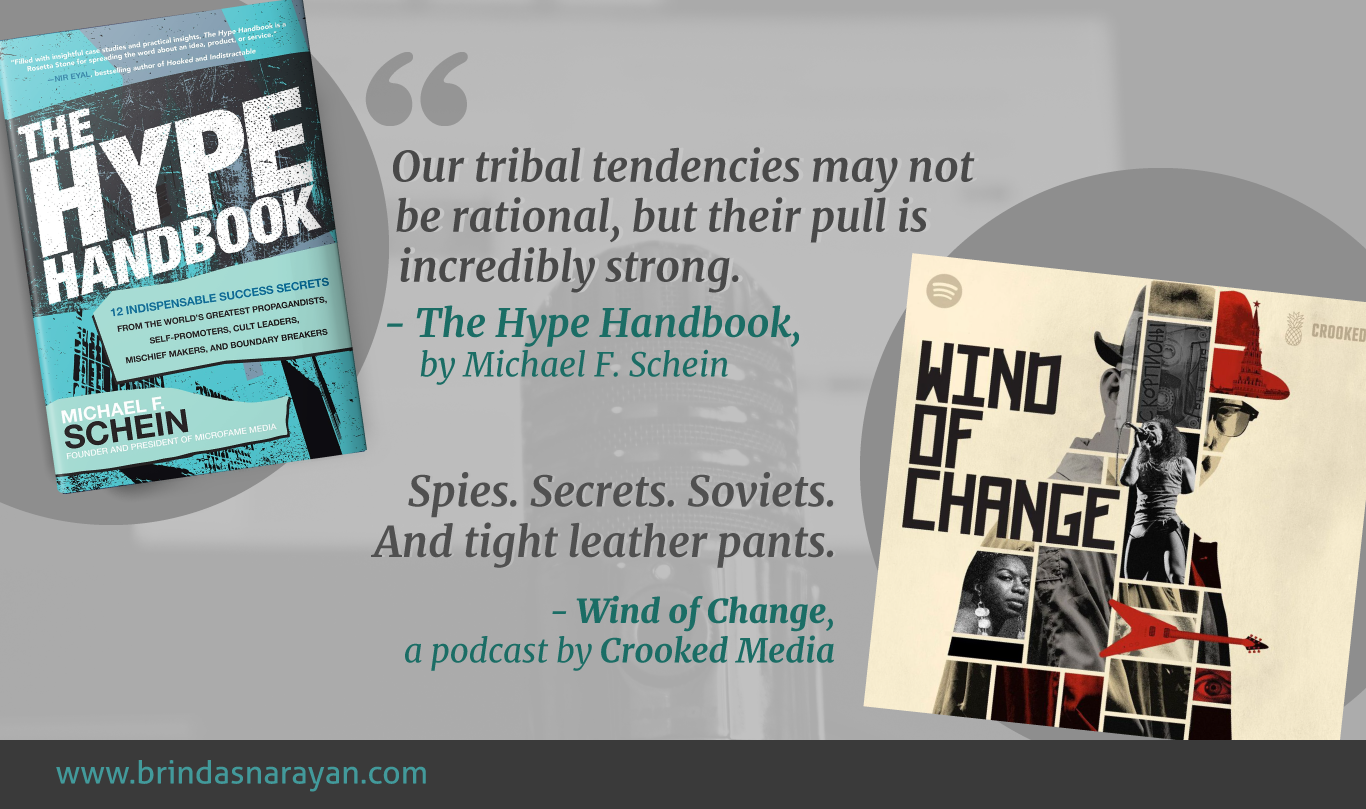
Lessons from Podcasts: Generating Hype Like (or Through) Rockstars
One of the offshoots of months of relative confinement has been the discovery, for me at least, of new forms of entertainment. Besides Web Series, it has been diverting to stumble on riveting podcasts, especially those that imbue the audio tales with a gritty, documentary feel. Wind of Change, created by the New Yorker writer Patrick Radden Keefe is one of those gratifying listen-ins that starts with a tantalizing premise. The question that trigger’s Keefe’s quest across continents to engage with spies, ex-spies, band managers, drug runners, historians, rock fans and songwriters is this: Was the chartbusting song, Wind of Change, by the heavy-metal German band, Scorpions, actually penned by the CIA?
For those of you who wonder why this would be intriguing, and also hilarious (if we temporarily suspend judgement about the murk and dark motives that power international espionage), you should pay heed to the lyrics. The first few lines of the song, first released in 1991, read:
I follow the Moskva
Down to Gorky Park
Listening to the wind of change
An August summer night
Soldiers passing by
Listening to the wind of change
The world is closing in
Did you ever think
That we could be so close, like brothers?
The words embody the values typical of rock and heavy metal bands, freedom, exploration, brotherhood, a rugged individuality. Around the time, since the gusts of glasnost were blowing over the Soviet Union, and the Berlin Wall had recently collapsed, the song seemed to capture of the zeitgeist and lush sentiments of its time. The Scorpions song writer claimed that the words had been inspired by his band’s 1989 performance before a staggering crowd of 100,000 mesmerized listeners, at a rock concert permitted for the first time in the Soviet Union’s history at the Lenin Stadium.
The lyrics were also infused with the specificities of that time and place – Moskva stands for Moscow and the Moskva River that flows through the city. Gorky Park, perhaps as central to Moscow’s history as the Central Park is to New York, is named after the Russian writer Maxim Gorky.
So, when Reefe, suggests in his podcast’s first episode that one of the most successful power ballads in recent times might have been written not by some long-haired, leather-clad, tattooed songwriter but by middle-aged men in suits, perhaps even emerging from the conservative Midwest or some other Church-going region, and without any first-hand feel of Moskva or for that matter of the kind of “freedom” that rebel band members yearn for, one is sucked into the zany listening trip.
Filled with charges, countercharges, twists and jolts, the ongoing suspicions of one and all, and even toying with the notion that Keefe himself might be a pawn of the CIA, in order to perpetuate the idea that the Agency is “cooler” than it really is, the podcast delivers the peppery intrigues of a good spy novel.
It was also fun to combine this narration with another idea, that I discovered through a different podcast, and which has also been released as a McGraw Hill book. This notion, expounded by Michael F. Schein in The Hype Handbook, studies the methods of hype artists – of people who have succeeded in generating enviable levels of hype that most marketers strive in vain to achieve. The attention-begetting champs that Schein examines include “Propagandists, Self-Promoters, Cult Leaders, Mischief Makers and Boundary Breakers.” Schein himself realized that often the 4Ps – Product, Price, Promotion and Place – propagated by marketing textbooks don’t boost sales or win audiences.
Instead, one would gain by analyzing the “tricks” deployed by those who actually garner eyeballs and seem to do so with relative ease and a seemingly inimitable spunk. This might involve adopting more of an adolescent’s mindset, especially the kind that fuels band promotions, and where almost no ideas are shot down for being too absurd or undignified. Schein intriguingly suggests that even good causes and ethical enterprises might gain from studying those who inhabit “greyer” zones, by learning from rule breakers rather than textbook writers.
Quite often, agencies like the CIA have abandoned conventional marketing methods and turned to wilder, no-holds barred means to push their objectives. After all mere propaganda – the dropping of leaflets, overt brainwashing – rarely wins over opponents as effectively as more persuasive and even covert tools. Like songs or movies (think[SR1] of the expose depicted in Argo, the Oscar winning movie starring Ben Affleck). Even if we’re not sure if the lyrics were actually penned by the CIA or not, those who are attempting to garner hype might want to take a leaf from Schein’s offbeat methods.




